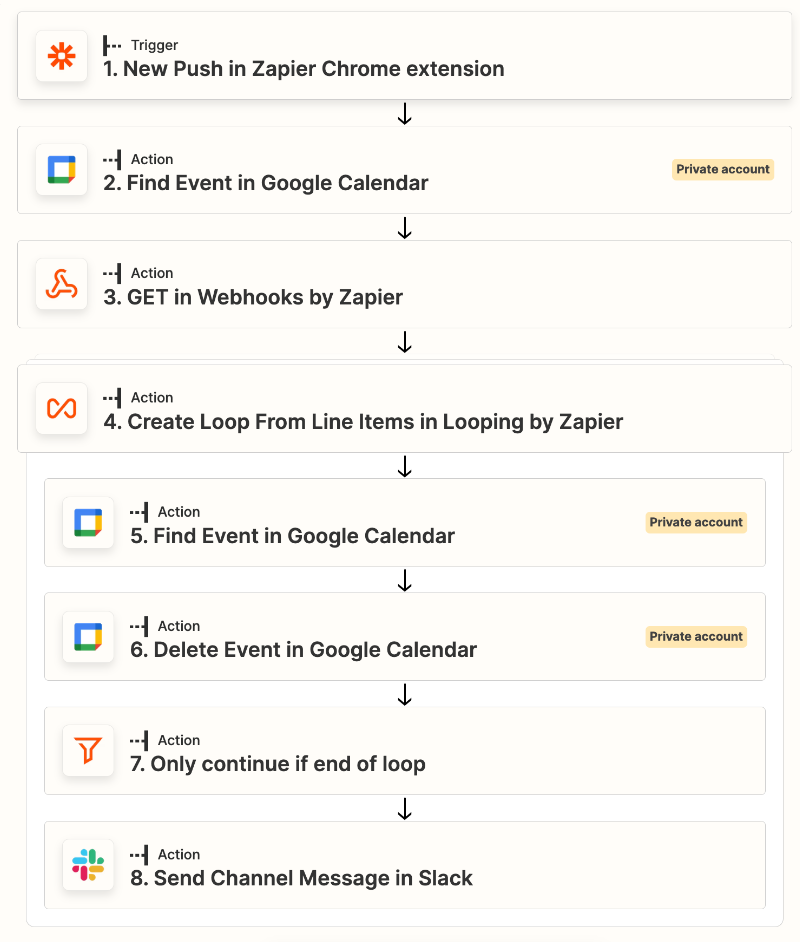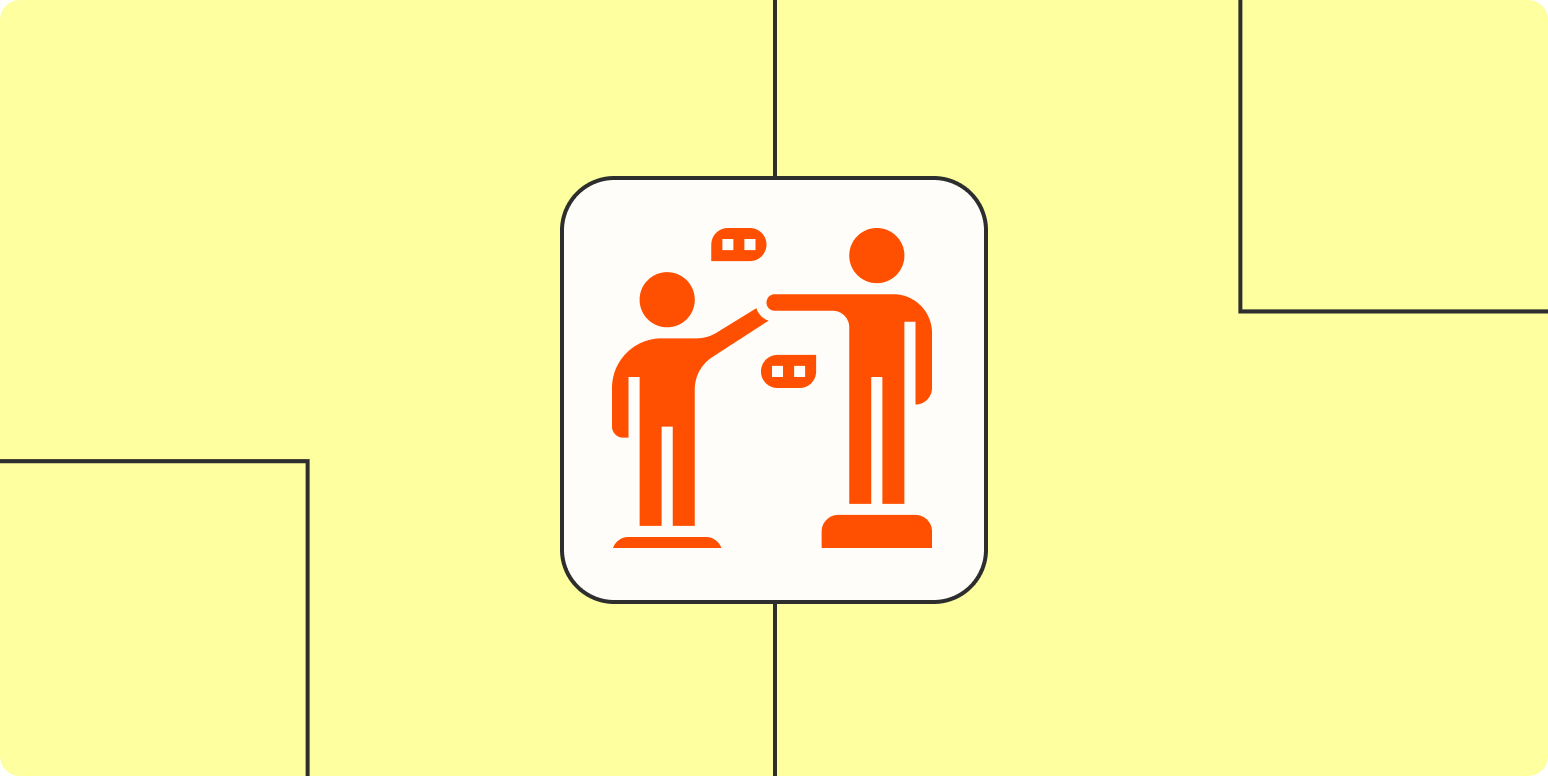A comprehensive onboarding experience for new employees can set them up for success. That’s why every Zapier employee goes through a month-long onboarding process to help ramp them up.
Ashley Priebe Brown, Zapier’s onboarding program manager, is often the first person new Zapier employees meet. She coordinates and runs workshops on everything from our company values to security to using our product.
It might seem ironic that an automation company would struggle with manual tasks. But as Zapier kept growing, that meant Ashley was faced with larger groups of new hires. She realized the current program needed an overhaul to keep up.
“It took hours to process every incoming new hire,” Ashley says. “We wanted to automate the manual processes of our onboarding program from managing calendars to pairing new employees with veterans.”
Skip ahead:
The challenge: Managing calendar events and invites
Zapier’s onboarding program includes a combination of asynchronous learning in Lessonly and live sessions through Zoom.
In a given onboarding group, Ashley might run up to four separate tracks because of time zones. These live sessions are standing Google Calendar events, so Ashley doesn’t have to constantly create them. But she had to manually delete sessions she wasn’t using and add new hires to the correct event.
Now, she uses two Zaps to do it for her. With a click of the Zapier Chrome extension, Ashley triggers a Zap that automatically deletes calendar events. Another click (and a separate Zap) later, she adds invitees to the remaining events.
Behind the Zap
When Ashley needs to delete calendar sessions, she fires off her 8-step Zap from the Zapier Chrome extension.
First, Zapier looks for an event in Google Calendar that matches specific criteria. Next, Webhooks by Zapier searches Ashley’s master Airtable for onboarding sessions she’s marked “no.”
Why use a webhook instead of an Airtable action? “Webhooks allow you to grab multiple records at a time—up to 99—in Airtable,” Ashley explains.
Then, Looping—a Zapier feature currently in beta—comes into play.
“Looping is my favorite Zapier feature,” Ashley says. “It lets me repeat the same action over and over with batches of new hires.”
Looping continuously searches for Google Calendar events that match the sessions marked “no” in Airtable and deletes the calendar event. Once all the unnecessary events have been deleted, Zapier sends Ashley a confirmation message in Slack.

It’s a complex Zap, but Ashley emphasizes that the alternative—manually clicking and deleting each calendar event—was unacceptable.
“It takes about four clicks to delete an event in Google Calendar,” she says. “Imagine doing those dozens of times, week after week.”
The challenge: Launching new hires into the onboarding process
At Zapier, we default to using tools that integrate with our product. Though Ashley was already using an onboarding platform that integrated with Zapier, the API wasn’t allowing her to perform the actions she needed.
She decided to switch to a different tool, Enboarder, to help scale the process. Her criteria: She needed a tool that would allow her to automatically launch onboarding workflows from our recruiting platform, Greenhouse. She also needed a way to automatically update information in Airtable as needed.
“We used to manually launch every employee into their onboarding workflow, which would take about 30 minutes per hire,” Ashley explains. “We had to click a bunch of buttons or fill out a form. There’s all these fields you have to input with so much room for error because we have to do different things for different teams.”
Thanks to Enboarder’s robust API, she could connect Greenhouse to Enboarder through Webhooks by Zapier.
Now whenever a new candidate is marked as hired in Greenhouse, a Zap automatically sends that information directly to Enboarder. Once Enboarder receives that info, it automatically adds the new hire to the onboarding workflow.
A copy of the new hire’s information also goes to Airtable, which Ashley says serves as the back-end database for the onboarding program.
The challenge: Pairing new hires with experienced employees
We also have a system called “Zap Pals,” where new hires are paired with veteran employees who can answer any questions and be another welcoming face.
Current employees can opt-in to be a Zap Pal and Ashley maintains the roster in Airtable. Instead of playing matchmaker herself, Ashley uses a Zap to trigger whenever a new event is added to the onboarding Google Calendar.
Once it’s triggered, a webhook connects to Enboarder to look for any new employees starting at the time of that calendar event. Then, Zapier searches for an available Zap Pal in Airtable, and finally, matches them up in Enboarder a few days before a new hire’s start date.
Looping gives Ashley the power to match Zap Pals automatically—and she notes that it’s a more elegant way of handling data.
“Instead of triggering a Zap when there’s a new record in Airtable, I can loop the same actions with the entire list,” she says. “It’s also more task efficient.”
Automation for a more human onboarding experience
Ashley estimates that she’s saved a year and a half of working hours with her Zaps since July 2019. Now she can use her skills as a former schoolteacher and project manager to focus on iterating the onboarding program.
“Automation allows me to make the human side of our program better and take care of new hires,” she says.
And while automation helped Ashley solve a pressing issue in her work, she also says the process of creating these solutions has been even more gratifying.
“Building all of these Zaps has been one of the most satisfying parts of my role,” Ashley says. “I learned a new skill and we can work on higher-level projects with more impact.”
Automation to unlock human potential? We like the sound of that.
[adsanity_group align=’alignnone’ num_ads=1 num_columns=1 group_ids=’15192′]
Need Any Technology Assistance? Call Pursho @ 0731-6725516







